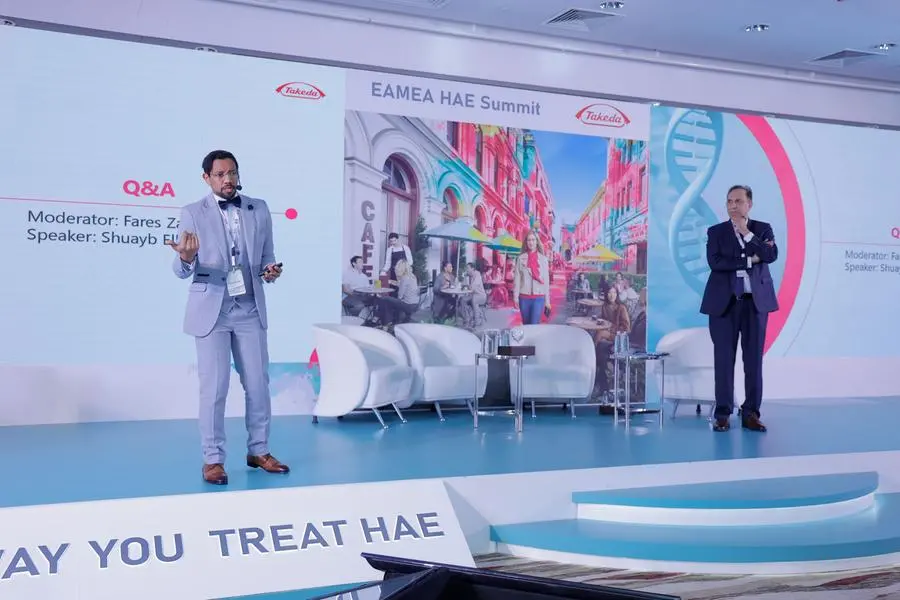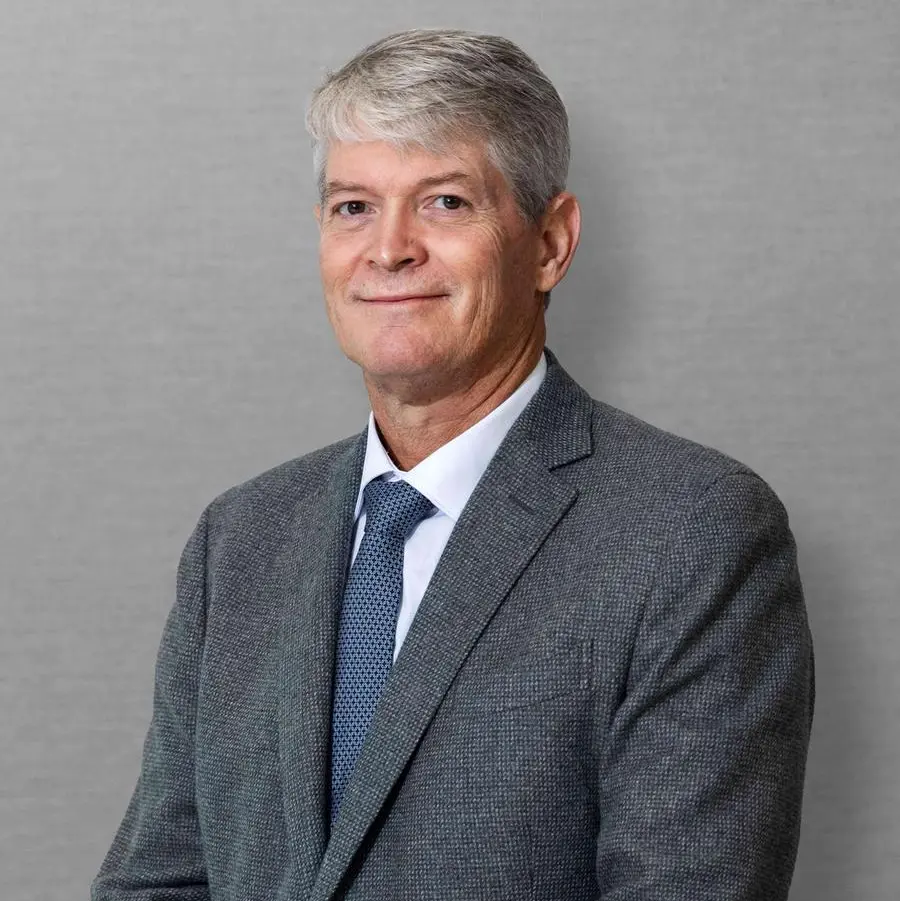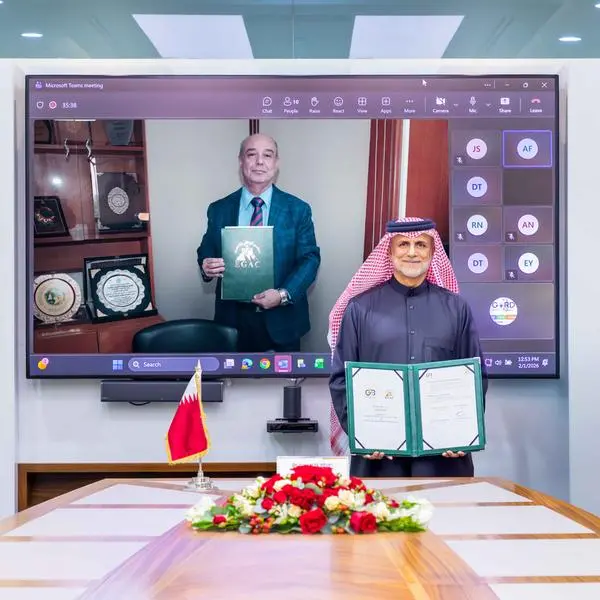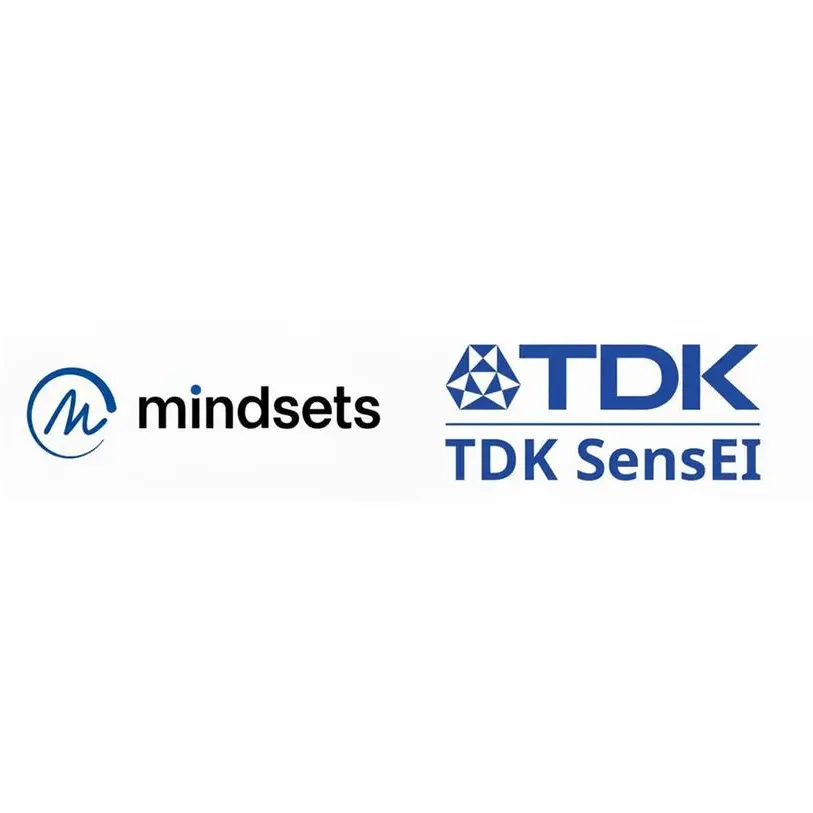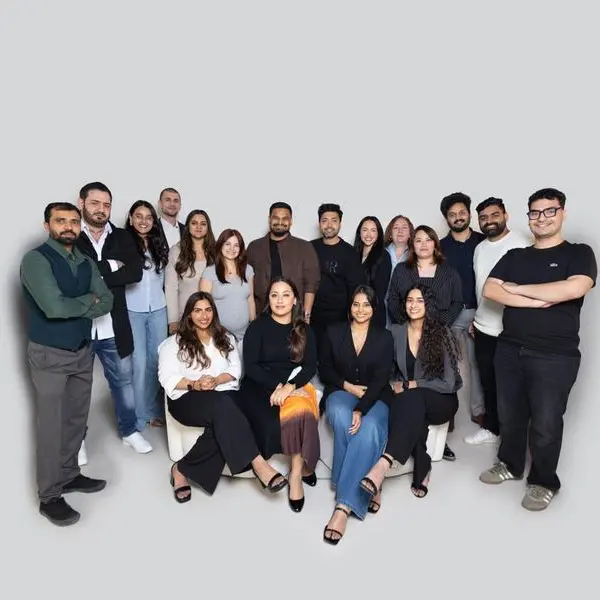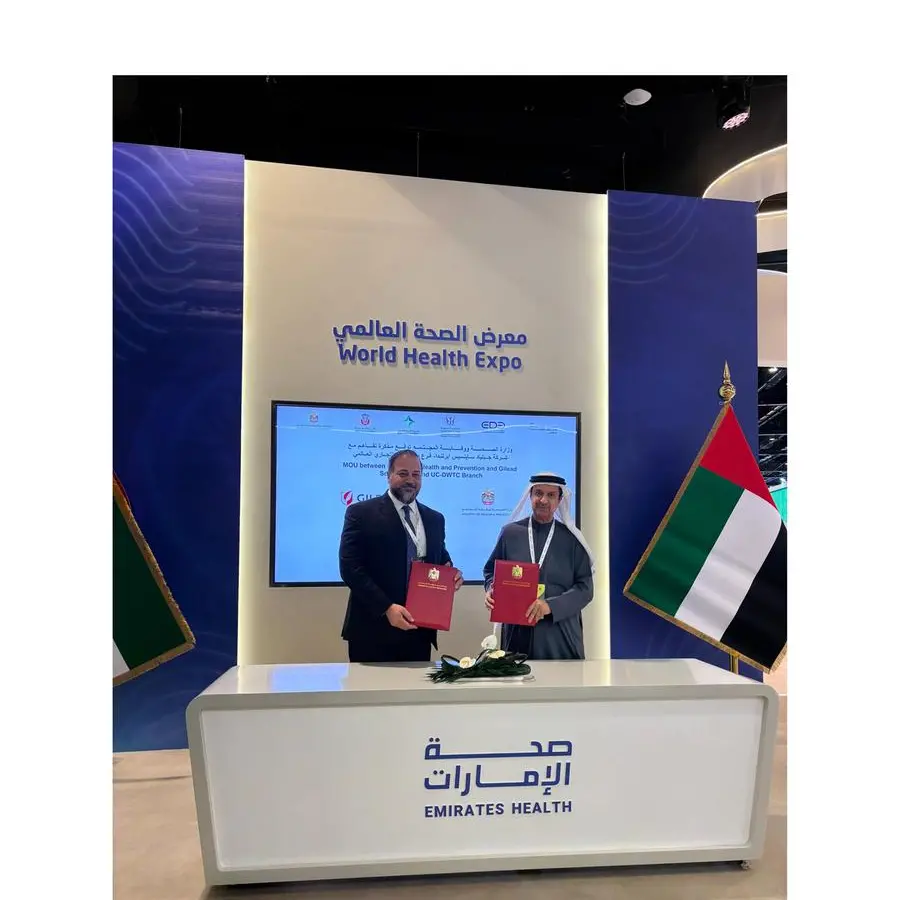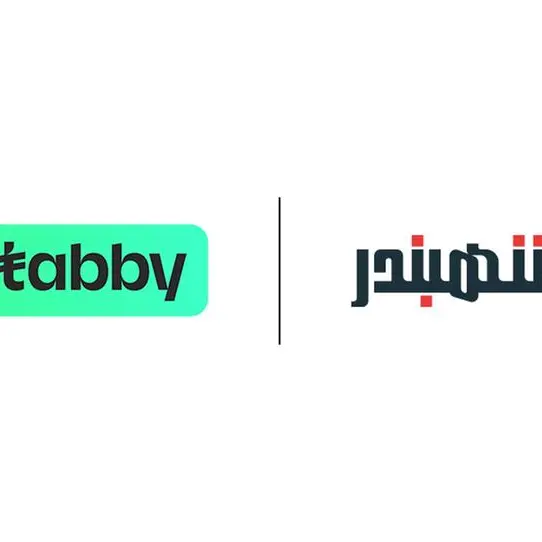PHOTO
Dubai, United Arab Emirates: Global biopharmaceutical company Takeda recently hosted the event “Innovation and Hope: Connecting Minds to Transform HAE Patient Care” in the region, uniting healthcare professionals to discuss innovative therapies and collaborative strategies for managing Hereditary Angioedema (HAE) in the Middle East.
Hereditary Angioedema (HAE) is a rare genetic disorder affecting approximately 1 in 50,000 individuals worldwide. It is characterized by recurrent episodes of swelling in various parts of the body, including the face, neck, and throat. Symptoms can be unpredictable and may occur at any age and swelling of the upper airways can be particularly dangerous and may lead to fatal asphyxiation. HAE attacks can last up to 5 days and may spread to another location before resolving, and can be triggered by factors such as stress, injuries, hormonal changes, and dental procedures. Symptoms typically worsen over the first 24 hours and subside over the next 48–72 hours. These unpredictable symptoms can lead to severe complications, making timely diagnosis and treatment crucial.[1]
To address the gaps in HAE diagnosis and treatment in the UAE, this event showcased leading HAE healthcare experts from the region through a series of plenary sessions and panel discussions. These sessions raised awareness of both the clinical and societal dimensions of HAE care. It primarily focused on the nuances of local healthcare systems and diagnosis and treatment protocols, while also presenting the latest real-world case studies, clinical findings, and research to improve the lives of HAE patients.
“We take pride in bringing together healthcare professionals and patient advocates for ‘Innovation and Hope: Connecting Minds to Transform HAE Patient Care’. It highlighted our commitment to enhancing the diagnosis and treatment of Hereditary Angioedema in the UAE. Through fostering collaboration and sharing advancements in care, we aim to improve health outcomes for patients and their families,” said, Ahmed Fayed, General Manager, Takeda East Gulf and Levant Cluster
Professor Mohamed Abuzakouk, Consultant in Clinical Immunology and Allergy and Chairman of the Gulf Academy Conference on Allergy and Clinical Immunology 2025, Abu Dhabi, UAE, stated, “The management of Hereditary Angioedema continues to evolve with events like these, and the collaboration between healthcare professionals, researchers, and patient advocates is crucial for improving patient care. By embracing advanced treatment options, we are offering hope to patients and their families, enabling them to live healthier, more stable lives without the constant fear of debilitating attacks.”
Takeda is dedicated to enhancing access to HAE treatments across the Middle East by fostering regional collaborations and implementing tailored patient care approaches. The emphasis will remain on both short-term and long-term strategies to ensure sustainable improvements in HAE management, ultimately benefiting patients and their families in the region.
-Ends-
About Takeda
Takeda is focused on creating better health for people and a brighter future for the world. We aim to discover and deliver life-transforming treatments in our core therapeutic and business areas, including gastrointestinal and inflammation, rare diseases, plasma-derived therapies, oncology, neuroscience and vaccines. Together with our partners, we aim to improve the patient experience and advance a new frontier of treatment options through our dynamic and diverse pipeline. As a leading values-based, R&D-driven biopharmaceutical company headquartered in Japan, we are guided by our commitment to patients, our people and the planet. Our employees in approximately 80 countries and regions are driven by our purpose and are grounded in the values that have defined us for more than two centuries. For more information, visit www.takeda.com.
For more information, please contact.
Ronak Thakkar
E: Ronak.thakkar@fleishman.com
[1] Lumry WR. Am J Manag Care 2013;19: S103–S110
Zuraw et al. J Allergy Clin Immunol Pract. 2013; 1:458–67
Bowen T, et al. Ann Allergy Asthma Immunol. 2008;100(Suppl 2): S30–S40
Aygören-Pürsün E, et al. Orphanet J Rare Dis. 2018; 13:73
Lumry WR. Front Med. 2018; 5:22
Zuraw BL. N Engl J Med. 2008;359:1027–36
MacGinnitie AJ. Pediatr Allergy Immunol. 2014; 25:420–7
Banerji A, et al. Ann Allergy Asthma Immunol. 2013; 111:329–36
